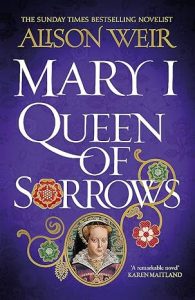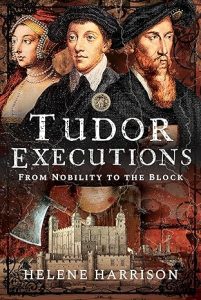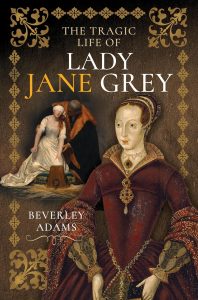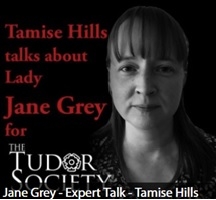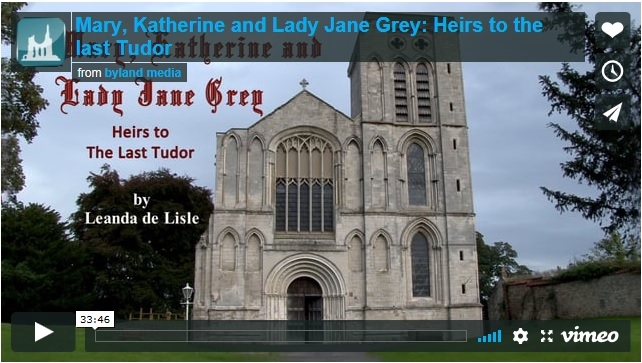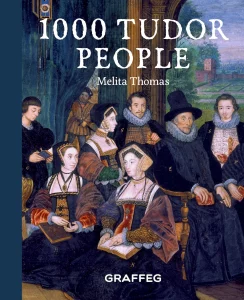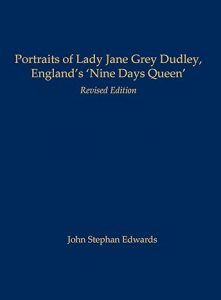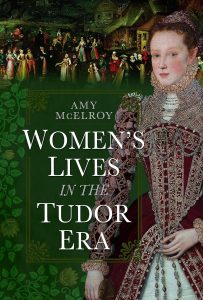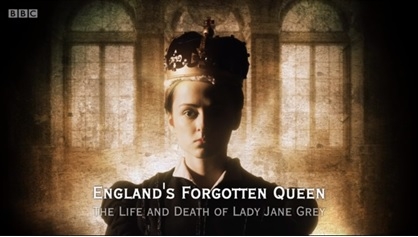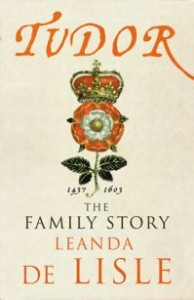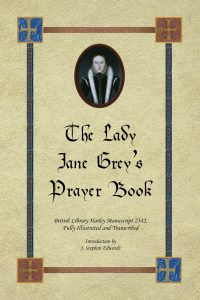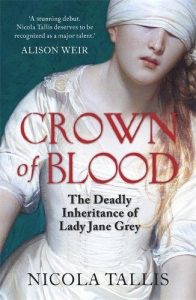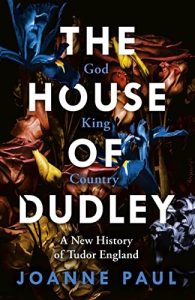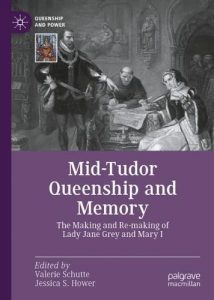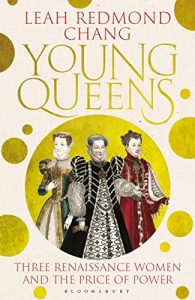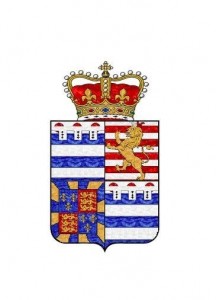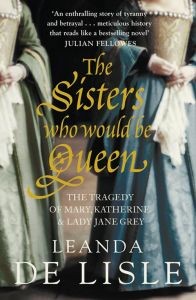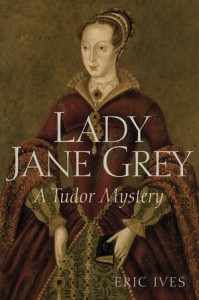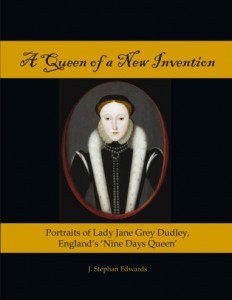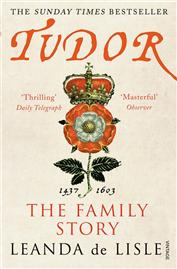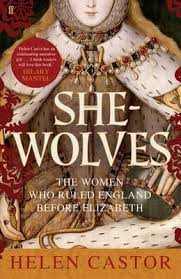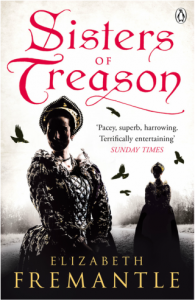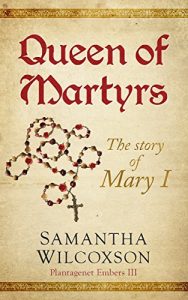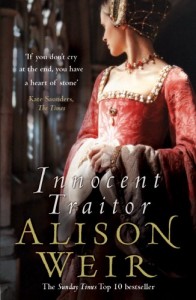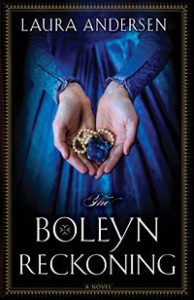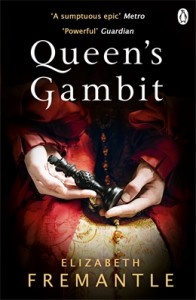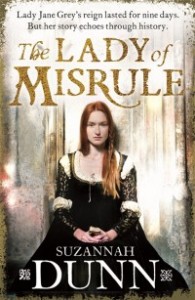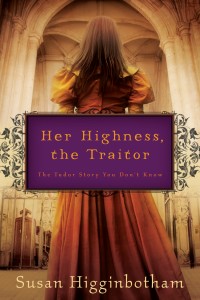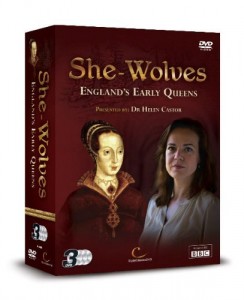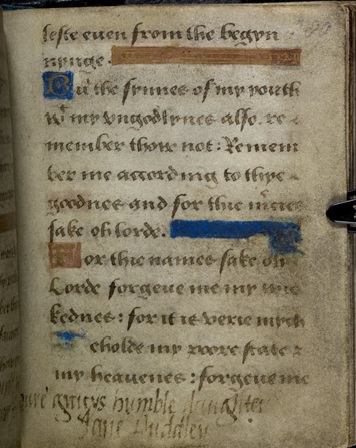The Chronicle of Queen Jane and of Two Years of Queen Mary, and Especially of the Rebellion of Sir Thomas Wyat
p 54-59
‘The Monday, being the xijth of Februarie, about ten of the clocke, ther went out of the Tower to the scaffold on Tower Hill, the lorde Guilforde Dudley, sone to the late duke of Northumberland, husbande to the lady Jane Grey, daughter of the Duke of Suffolke, who at his going tooke by the hand sir Anthony Browne, maister John Throgmortom, and many other gentyllmen, praying them to praie for him; and without the bullwarke Offeley the sheryve received him and brought him to the scaffold, where, after a small declaration, having no gostlye father with him, he kneeled downe and said his praiers; then holding upp his eyes and hands to God many tymes; and at last, after he had desired the people to pray for him, he laide himself along, and his hedd upon the block, which was at one stroke of the axe taken from him.
Note, the lorde marques stode upon the Devy’s towre, and sawe the execution. His carcas throwne into a carre, and his hed in a cloth, he was brought into the chappell within the Tower, wher the ladye Jane, whose lodging was in Partrige’s house, dyd see his ded carcase taken out of the cart, as well as she dyd see him before on lyve going to his deathe, – a sight to hir no lesse then death.
By this tyme was ther a scaffold made upon the grene over against the White tower, for the saide lady Jane to die apon. Who with hir husband was appointed to have ben put to deathe the fryday before, but was staied tyll then, for what cause is not knowen, unless yt were because hir father was not then come into the Tower. The saide lady, being nothing at all abashed, neither with feare of her owne deathe, which then approached, neither with the sight of the ded carcase of hir husbande, when he was brought in to the chappell, came fourthe, the levetenaunt leding hir, in the same gown wherin she was arrayned, hir countenance nothing abashed, neither her eyes anything moysted with teares, although her ij. gentylwomen, mistress Elizabeth Tylney and misrress Eleyn, wonderfully wept, with a boke in hir hande, wheron she praied all the way till she cam to the saide scaffold, wheron when she was mounted &….’
The Ende of the lady Jane Dudley, daughter of the duke of Suffolk, upon the scaffold, at the houre of her death.
‘First, when she mounted upon the scaffold, she sayd to the people standing thereabout: “Good people, I am come hether to die, and by a lawe I am condemned to the same. The facte, in dede, against the quenes highnesse was unlawfull, and the consenting thereunto by me: but touching the procurement and desire therof by me or on my halfe, I doo wash my hands thereof in innocencie, before God, and the face of you, good Christian people, this day,” and therewith she wronge her handes, in which she had hir booke. Then she sayd, “I pray you all, good Christian people, to beare me witnesse that I dye a true Christian woman, and that I looked to be saved by none other meane, but only by the mercy of God in the merites of the blood of his only sonne Jesus Christ: and and I confesse, when I dyd know the word of God I neglected the same, loved my selfe and the world, and therefore this plague or punishment is happily and worthily happened unto me for my sins; and yet I thank God of his goodnesse that he hath geven me a tyme and respet to repent. And now, good people, while I am alive, I pray you to assyst me with your prayers.” And then, knelyng downe, she turned to Fecknam, saying, “Shall I say this osalme?” And he said, “yea.” Then she said the psalme of Miserere mei Deus in English, in most devout maner, to the end. Then she stode up, and gave her maiden mistris Tilney her gloves and handkercher, and her book to maister Btuges, the lyvetenantes brother; forthwith she untied her gown. The hangman went to her to help her of therewith; she desired him to let her alone, turning towardes her two gentlewomen, who helped her off therwith, and also with her frose past and neckercher, giving her a fayre handkercher to knytte about her eyes.
Then the hangman kneeled downe, and asked her forgevenesse, whome she forgave most willingly. Then he willed her to stand upon the strawe: which doing, she sawe the block. Then she sayd, “I pray you dispatch me quickly.” Then she kneeled down, saying, “Will you take it off before I lay me downe?” and the hangman answered her, “No, madame.” She tyed the kercher about her eys; then feeling for the blocke, saide, “What shall I do? Where is it?” One of the standers-by guyding her thereunto, she layde her heade down upon the block, and stretched forth her body and said: “Lorde, into thy hands I commende my spirite!” And so she ended.’
——————————————————————————–
Original Letters Relative to the English Reformation
Letter CXLI
John Banks to Henry Bullinger
London March 15 1554
’But although this family is now overthrown and almost extinct, on account of their saving profession of our Saviour, and the cause of the gospel; yet all godly and truly Christian persons have not so much to mourn over the ruin of a family so illustrious, as to rejoice that the latest action of her life was terminated in bearing testimony to the name of Jesus…
…Jane then, the daughter of the duke, was truly admirable, not so much by reason of her incredible attainments in literature, by which in the seventeenth year of her age she excelled all other ladies, as by reason of the remarkable firmness with which, though a young girl, she surpassed men in maintaining the cause of Christ; insomuch that she could neither be defeated by any contrivances which the papists imagined against her, nor be deceived by any of their artifices, as your reverence will understand from a discourse of hers which I will now send you.
This conference was held by her with master Feckenham, a clever and crafty papist, upon some controverted points of our religion, upon which she explained her opinion with much learning and ingenuity. And that she persevered in this confession of faith even to the last, is sufficiently evident from the statement she made a little before her execution. This I have thought fit to send together with the other, because they seemed to me worthy of being universally known. Moreover, it may be seen how her truly admirable mind was illuminated by the light of God’s word, by two letters, one of which was herself wrote to the lady Catharine, her sister, a most noble virgin, to inspire her with a love of the sacred writings, and the other to a certain apostate, to bring him back to Christ the Lord. I have taken the pains to translate both of these letters from our vernacular language into Latin, that your excellence may perceive that the pains which you have taken to enlighten that family and incite them to the love of godliness have not been ill bestowed. For I can bear testimony, which if not very abundant, is at least that of an eye-witness, that the whole family of the Greys, and Jane, especially, derived incredible benefit from your writings. She indeed had not only diligently perused, but also committed to memory, almost all the heads of your sixth Decade.’
Letter CCXLI
Peter Martyr to Henry Bullinger
Strasburgh April 3 1554
‘Jane, who was formerly queen, conducted herself at her execution with the greatest fortitude and godliness, as did also her father and her husband.’
Letter LXXVII
Thomas Lever to Henry Bullinger
Geneva April 11 1554
‘He said that only the duke of Suffolk, and his daughter lady Jane, with her husband, were beheaded, and that they all continued stedfast in the profession of the true religion.’


